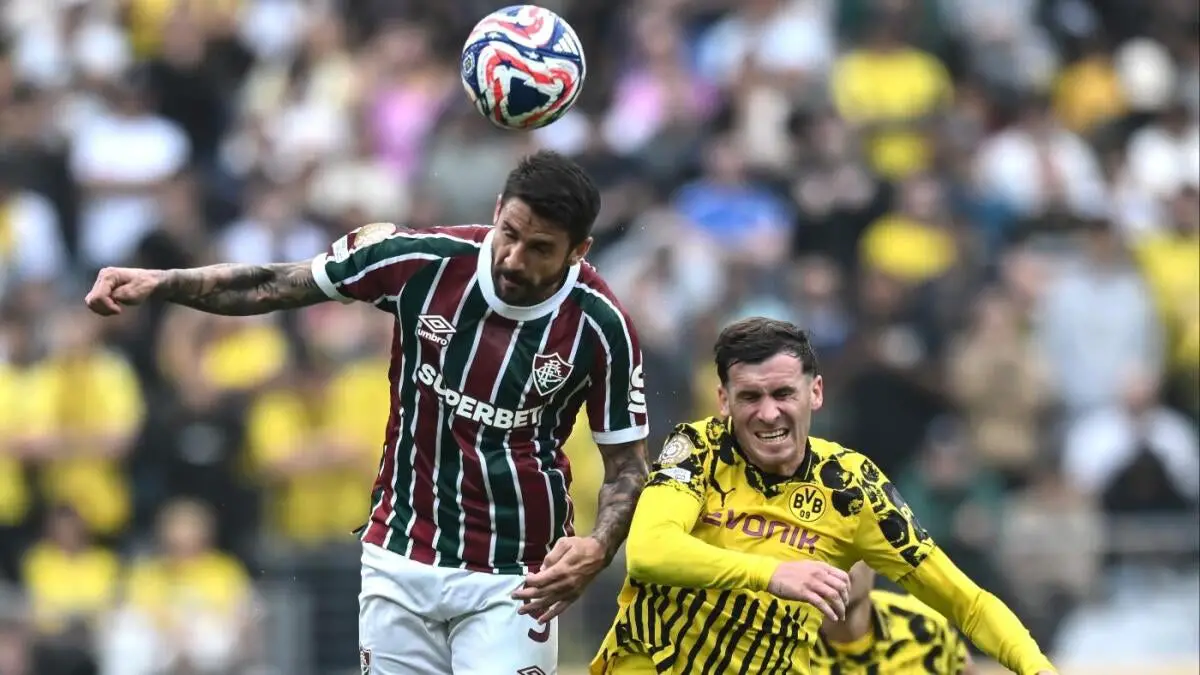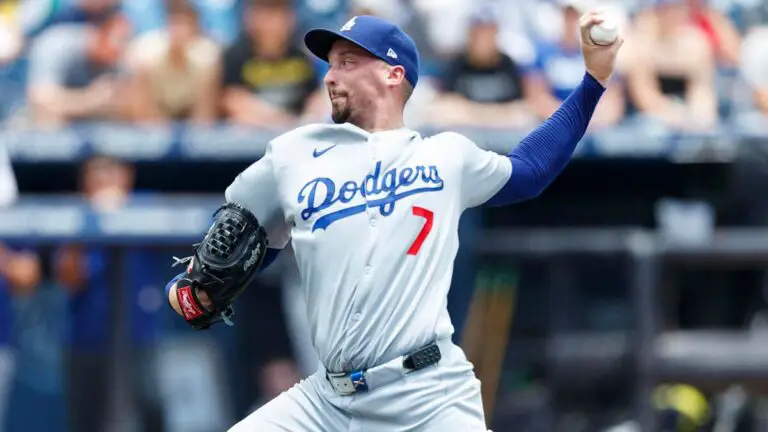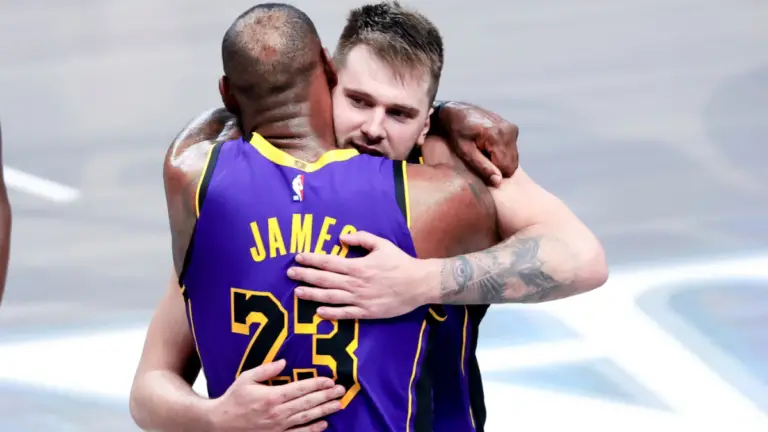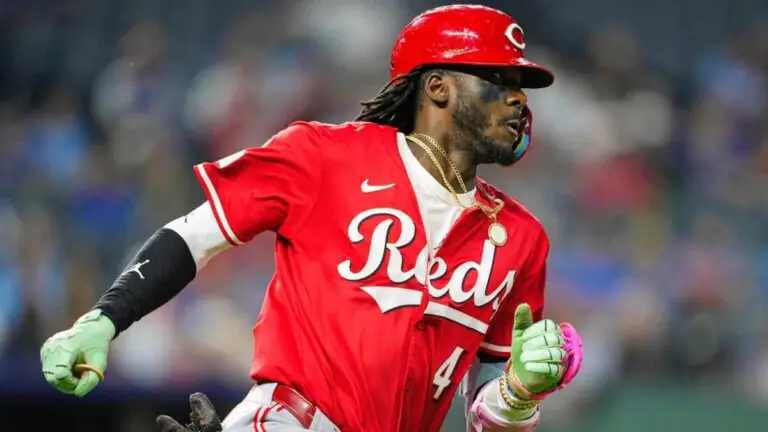

Can South American teams save Club World Cup? Brazilian, Argentinian clubs ‘play to win’ and prove worth
Can South American teams save Club World Cup? Brazilian, Argentinian clubs ‘play to win’ and prove worth

East Rutherford, NJ – The day before Fluminense’s Club World Cup opener against Borussia Dortmund, it was fairly easy to count the differences between the two parties, large and small. To begin with, Fluminense manager Renato Gaucho hoped that it would be blistering in a way that would be known to players in Brazil and misplaced for those who call Germany at home. Instead, the sides were treated on a mild day with some drizzle in the suburbs of New York. However, it was not the most important difference that he had in mind.
“It’s like what I said about going shopping,” Gaucho said on Monday in his comments for the competition. “What do you want, lobster? What do you want, shrimp? You can’t get it for a five, right? And that’s the difference. Financially they can get who they want. They can sign who they want because they have the money … people want the omelet, but they won’t give you the eggs to make an omelet.”
However, Fluminense conquered their obstacles well on Tuesday. In a 0-0 draw in Metlife Stadium, they were not the UEFA Champions League finalists Dortmund-Die last season more likely to win and the opposition with 14-7 surpassed. They may have left something to be desired in attack and only gathered 0.65 expected goals on the road, but they were not only for the task; They performed Dortmund better than the most meaningful categories. They were not the only ones either.
Fluminense was one of the six South American teams that were unbeaten in their opening match of the Club World Cup, which marked a strong start of the new extensive competition for the continent. The side based on Rio de Janeiro was one of the three to play against European opponents, each of those games that ended in a draw. In the early days of the new look competition, the teams reversed the script on an underdog label assigned to them, and they can save the competitive legitimacy of the Club World Cup on the way.
The financial reality of football means that the sport is usually viewed by a European lens, especially in the club game. That has not been a deterrent for South American parties such as Fluminense, who have not approached their competitions exactly, such as the weaker party they have sometimes seen as.
“I don’t just pay lip service to this whole thing. We play to win,” said Gaucho Monday. “I trust them. I trust my team, I trust my people. If I didn’t trust them, I would just go for defense. Of course we will be careful like an opponent, but what I tell them to do is be brave. Play with personality. … If I trust my team, why wouldn’t we be brave?
The Gaucho team met the promise, where the manager provided further insight into his tactical approach and its usability.
“There is not much to change or adjust,” he said. “We will have to do so well if we did today and are just calmer and more focused so that we can win. … We have not given them many opportunities and we have made opportunities for goals, so that’s how we protect ourselves.”
That spirit has been reflected by the other two South American teams to face the European opposition – Palmeiras, who bond with Porto 0-0 On Sunday, and Boca Juniors, who pulled 2-2 with Benfica on Monday. Boca surpassed Benfica 10-8, even if the quality of the opponent’s shots was better, while Palmeiras Porto surpassed with 17 shots on the 11 and the expected goals of 2.08 on Porto’s 0.78. However, their success has not been a shock for everyone.
“We expected them to have a lot of ball and tried to bring a lot of Wingers into the game,” said Dortmund manager Niko Kovac after the game. “I, like a former player and as a coach, I am not surprised because I know Brazilian football very well and I know they have a lot of quality.”
The success of South American teams is a suitable trend for this specific tournament. Although Europeans feel ‘skeptical’, as Kovac described on Monday about the extensive World Cup of the club, South Americans have heartily embraced it. The incentives are clear in some ways – each team simply receives more than $ 15 million for participation and can collect more than $ 100 million if they win the whole thing. As Gaucho noted on Monday, there is a chance for players in South America to make a name for himself and to score lucrative deals to become a member of teams in Europe, because the continent has always been rich in talent.
There is also a simple matter of playing for pride. South American teams clearly came to the US to make a point about their bonafides in a game that feels just as native to their countries as that of Europe. It is a similar pride that explains that legions of fans have chosen to follow them throughout the country during the World Championship of Club, Takeover of New York’s Times Square and Miami-area Walmarts with the same zeal While they do the actual stadiums that organize the competitions. They are responsible for creating incredible atmospheres, regardless of whether the game is closer to a sale, such as the draw of Boca Juniors against Benfica in the Hard Rock Stadium of Miami Gardens or less than half full, as it was in Metlife Stadium on Tuesday.
The Fluminen supporters who formed most of the 34,000 attendees almost made the difference of the approximately 50,000 empty seats together, when one looked at the stands and had the sounds of their songs and cheers painted most of the photo in terms of the size of the crowd. Their drums could still be heard of the press conference tent such as Gaucho and Jhon Arias, the player of the game, settled for their reflections after the game. It is the type of off-field story that defines the big tournament experience and in the absence of the parts of fans who usually represent Europe’s top clubs, it offers a strong memory that the game is not only one of the so-called elites.
Time will learn whether the South -American teams can keep their unbeaten streak. It does not feel like a piece to say that some of the best from the continent can go to toe to the second and third best teams in Portugal and the fourth best team in Germany, but larger tests are waiting. Flamengo has Chelsea Next and Botafogo play Champions League winners Paris Saint-Germain in the second set of group phase matches, while the group final of Botafogo is against Atletico Madrid and River Plate closes this phase against Champions League finalists inter. Even before their successful first series of competitions, many of these teams were expected to continue to the next round.
How far they can go collectively is a big question, but not a new one. In fact, the club World Cup marks a new chapter in one of the oldest stories of the game.
“It is always a struggle,” Kovac, “European football and South American football.”
Football



